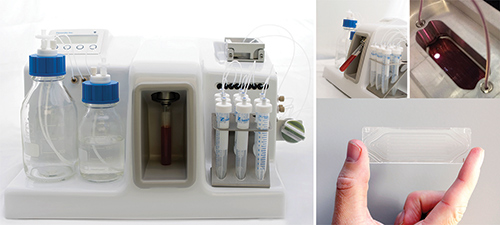
In 1971, President Nixon signed the National Cancer Act, declaring a War Against Cancer. Over the past 30 years, there has been an explosion in molecular oncology with consequent clinical approval of anticancer drugs targeted at specific molecules. The power of drugs, such as trastuzumab, bevacizumab, and gefitinib has resulted in substantially increased patient survival. However, the impact of these drugs continues to be restrained.
Tumor heterogeneity and cancer evolution lead to high relapse rates, and tumors that initially show response frequently develop resistance to initial therapies. Consequently, a major unmet clinical need today is the temporal molecular characterization of cancer. Clinicians require new methods to deploy molecular techniques in initial diagnosis and niche characterization of tumors and for ongoing monitoring of cancer evolution, drug resistance, and relapse. This requires noninvasive methods of biopsy to enable repeated examination of patients to determine the on-going evolution and the progression of their disease.
For the rest of the story, click here.













